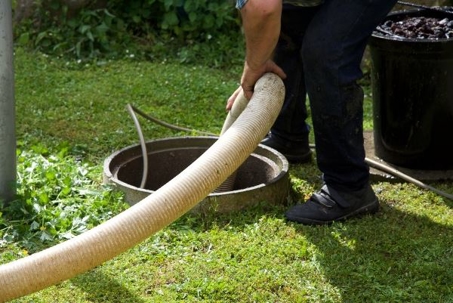Proper septic tank maintenance is essential for keeping your system running efficiently and avoiding costly repairs.
One of the most important responsibilities for any homeowner with a septic system is scheduling regular septic pumping.
But what factors influence how often you should have yours pumped? The truth is that septic pumping frequency varies, and several factors determine the ideal schedule for your home.
Below are the five most significant factors that influence how often you need to pump your septic tank.
1. Size of Your Household
The number of people living in your home directly impacts how quickly your septic tank fills. More people mean more wastewater – and faster buildup of solids.
Larger households may need more frequent service to prevent backups and system overload.
2. Size of Your Septic Tank
Tank capacity plays a major role in determining pumping frequency. Larger septic tanks can hold more solids, allowing more time between service visits, while smaller tanks fill up faster.
As a rule of thumb, plan to pump your septic tank once per 1,000 gallons of capacity. Your septic service provider can confirm your tank’s size if you’re unsure.
3. Total Amount of Wastewater Produced
It’s not just the number of people – it’s how much water your household uses.
Some households produce significantly more wastewater due to:
- Frequent guests
- Long showers
- High laundry usage
- Medical conditions requiring increased water use
Higher wastewater volume increases strain on the septic system and may require more frequent pumping than average.
4. Age, Type, and Condition of Your Septic Tank
Older or outdated septic tanks often require more maintenance.
Tanks made from concrete or steel may deteriorate over time and accumulate solids more quickly. Newer fiberglass or plastic tanks tend to perform more efficiently.
If your septic system is aging or showing signs of wear, you may need to adjust your pumping schedule to prevent blockages or system failure.
5. Total Volume of Solids in Household Wastewater
The amount of solids entering your septic tank significantly affects how quickly it fills.
Homes with heavy cooking, garbage disposal use, or high organic waste output may need pumping far more often.
General guidance:
- Light solids production – pump every 1-2 years
- Heavy solids production – pump every 6 months
Minimizing solids (such as avoiding overuse of the garbage disposal) can help extend the life of your system.
Final Thoughts: How Often You Should Pump Your Septic Tank?
While these five factors offer helpful guidance, the best way to determine the right septic pumping frequency for your home is to consult a licensed septic professional.
They can assess your tank, usage patterns, and system condition to recommend an optimized maintenance schedule.
Regular septic pumping protects your home, prevents costly repairs, and ensures your system operates safely and efficiently.
Contact us today to schedule your next septic pumping service.





